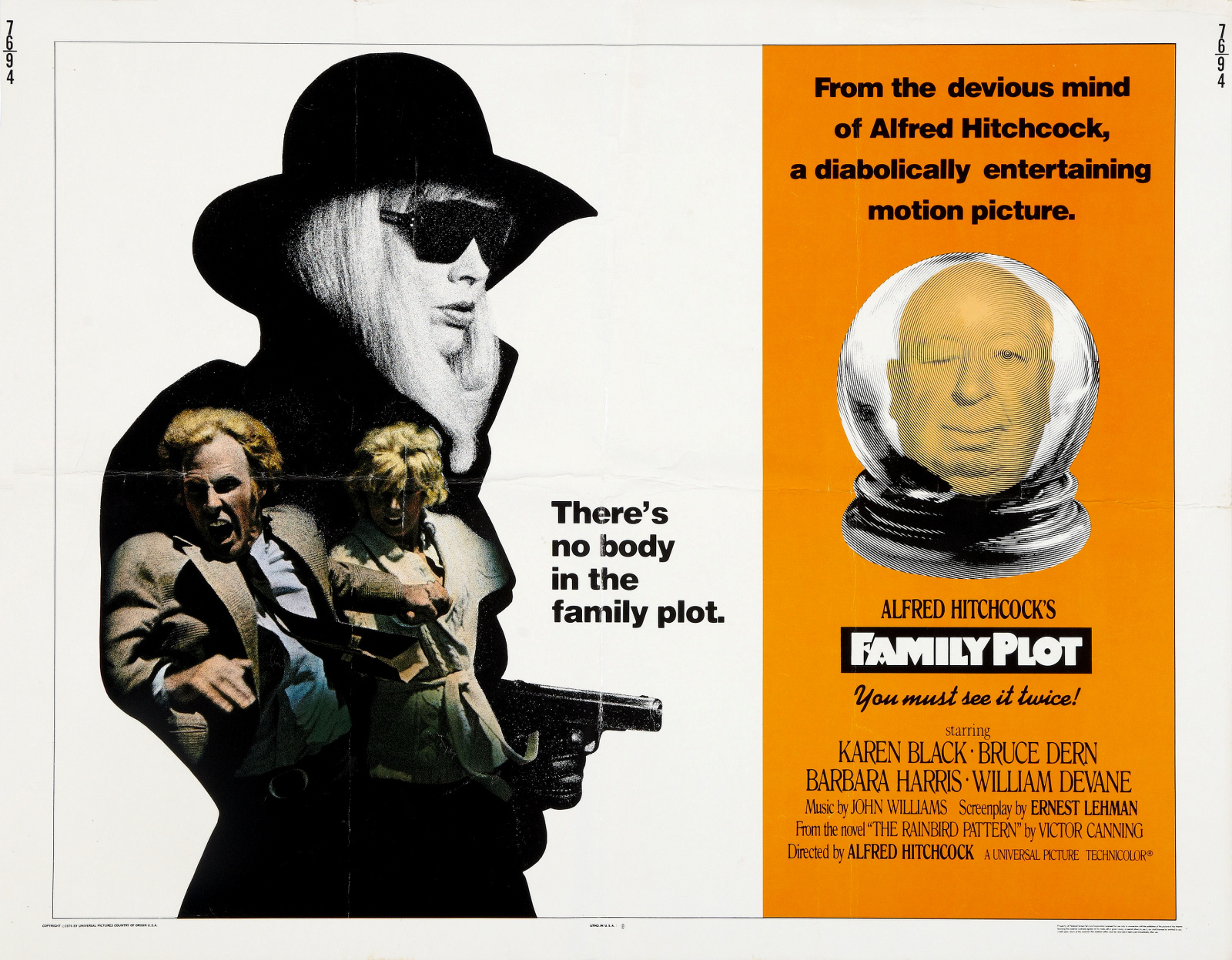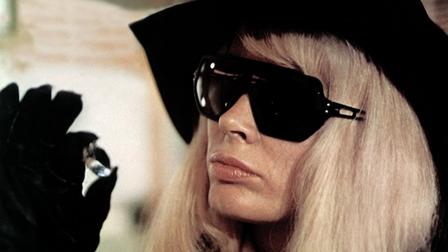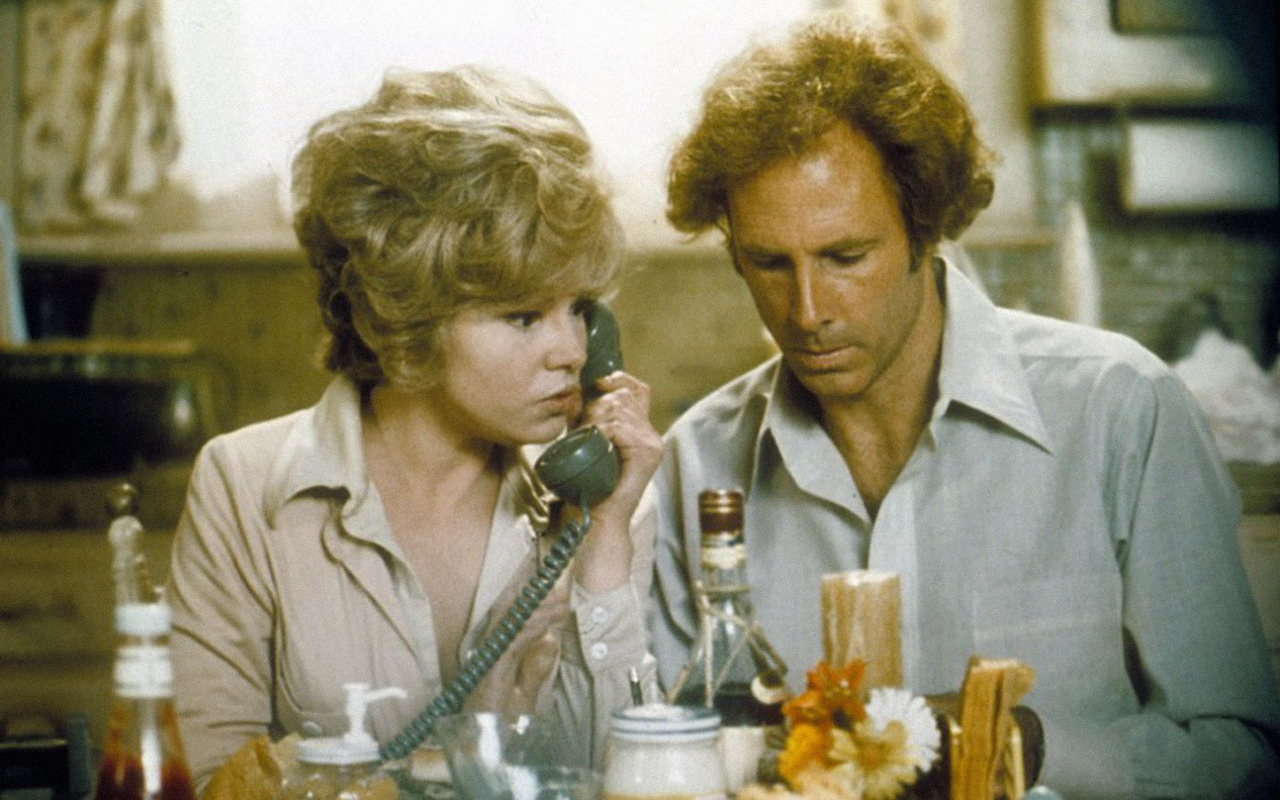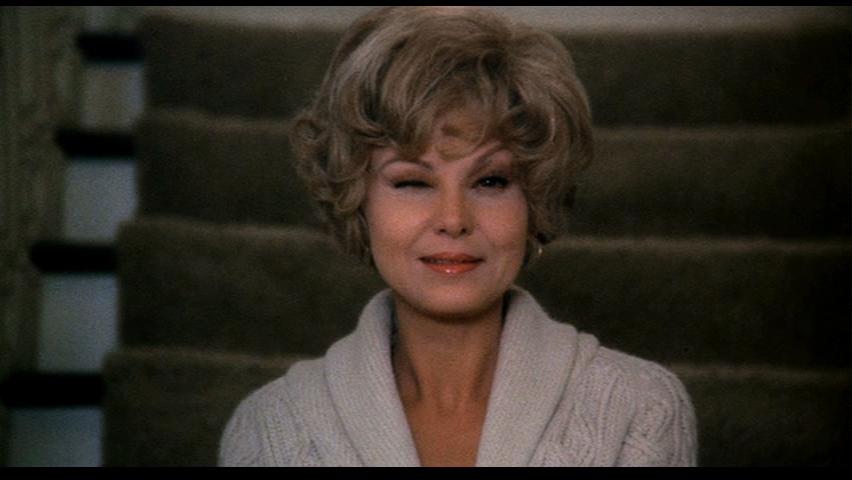Family Plot (1976)
 Friday, April 3, 2015 at 3:54PM
Friday, April 3, 2015 at 3:54PM 
In the immortal words of Gandalf in The Return of The King, “We come to it at last.” Of course, I’m referring to the fact that we’ve (or at least I’ve, unless I actually have other readers… possibly Mom) reached the end of this journey into the Master of Suspense’s oeuvre (or at least part of it; it’s substantial but not exactly complete). His last and final film was finished in 1976. With Frenzy regarded as a well overdue success after 2-3 very pedestrian thrillers, would Hitch be able to finish his career on top?

Family Plot is the story of “psychic” (or ostensibly lack thereof) Blanch Tyler (Barbara Harris) who uncovers the chance to make $10,000 by discovering the long lost relative of a wealthy widow. She and her bf (Bruce Dern as George Lumley in a very satisfyingly funny performance) go searching for this man of mystery. Is he dead? Is he alive? Is he played by William Devane in the only good performance I’ve ever seen him in? 1-2 of these things is true, but I of course will certainly not attempt to spoil what this early.
If we call the phase between 1964 and 1976 post-modern Hitchcock (i.e. the Final Act of Hitch’s Filmography) and only look at this phase, Family Plot is certainly amazing. Looking at his filmography as a whole, it would probably be right in the middle if we consider quality and critical acclaim. The story becomes a thriller/mystery and comedy almost on equal footing, which puts this into an echelon that the director hasn’t been commonly associated with during this period (at least with such overt humor). The comedic style mainly comes out in the interaction between our main characters, with Dern and Harris almost acting as a modern day Nick and Nora Charles of The Thin Man fame, giving slight desire to see their adventures beyond this film.

Beyond this, you’ve got great supporting characters played by the aforementioned Devane and Karen Black playing pseudo-couple Arthur Adamson and Fran. A partial dichotomy between the two pairs of characters is created as they have different priorities, which become interestingly complex when no one is necessarily doing anything “good” and “noble”; after all, our main characters are looking to swindle some old lady out of her money (though this concern is easily pushed aside by the audience when it’s discussed she is wealthy). Just as well, the opposing force of Arthur and Fran is nefarious but in the end all about money and with no original intention to actually harm people. Sure they may hire someone for a murder, but Hitch may be getting at some larger case of nature vs nurture (unfortunately details would lead to minor spoilers).
Technically there are some significant issues, mainly regarding moving vehicle process shots. Unfortunately this effect seems extremely dated in a 1970s-made movie, and even as such a generally progressive director like Hitch couldn’t seem to move beyond this type of filming. Part of the reason is ostensibly that he always hated shooting on location, but the sacrifice is verisimilitude especially having this film made after such amazing and complicated car scenes as in The French Connection (Friedkin wins this round). But I can accept this and move on to appreciate most else the film has to offer.
To say much more would be a disservice to what you learn while watching the film. Is it iconic? Is it perfect? Do I wish this wasn’t Hitch’s last film? As I wrote this last sentence, I surprisingly decided “no” to all the above. The Master of Suspense left us in ironically a state very much lacking in suspense, as he finished his career with a very satisfying piece of entertainment. Had it been anything more than that, we would all possibly be left wanting too much more. To more appropriately put the film on its own terms however, this writer thinks Hitch still had some solid tricks up his sleeve.

And to have his film literally go out with someone winking at the camera? What a perfect ending…
 Comedy,
Comedy,  Hitchcock,
Hitchcock,  Hitchcock Chaser,
Hitchcock Chaser,  Suspense in
Suspense in  Hitchcock Chasers
Hitchcock Chasers 


Reader Comments